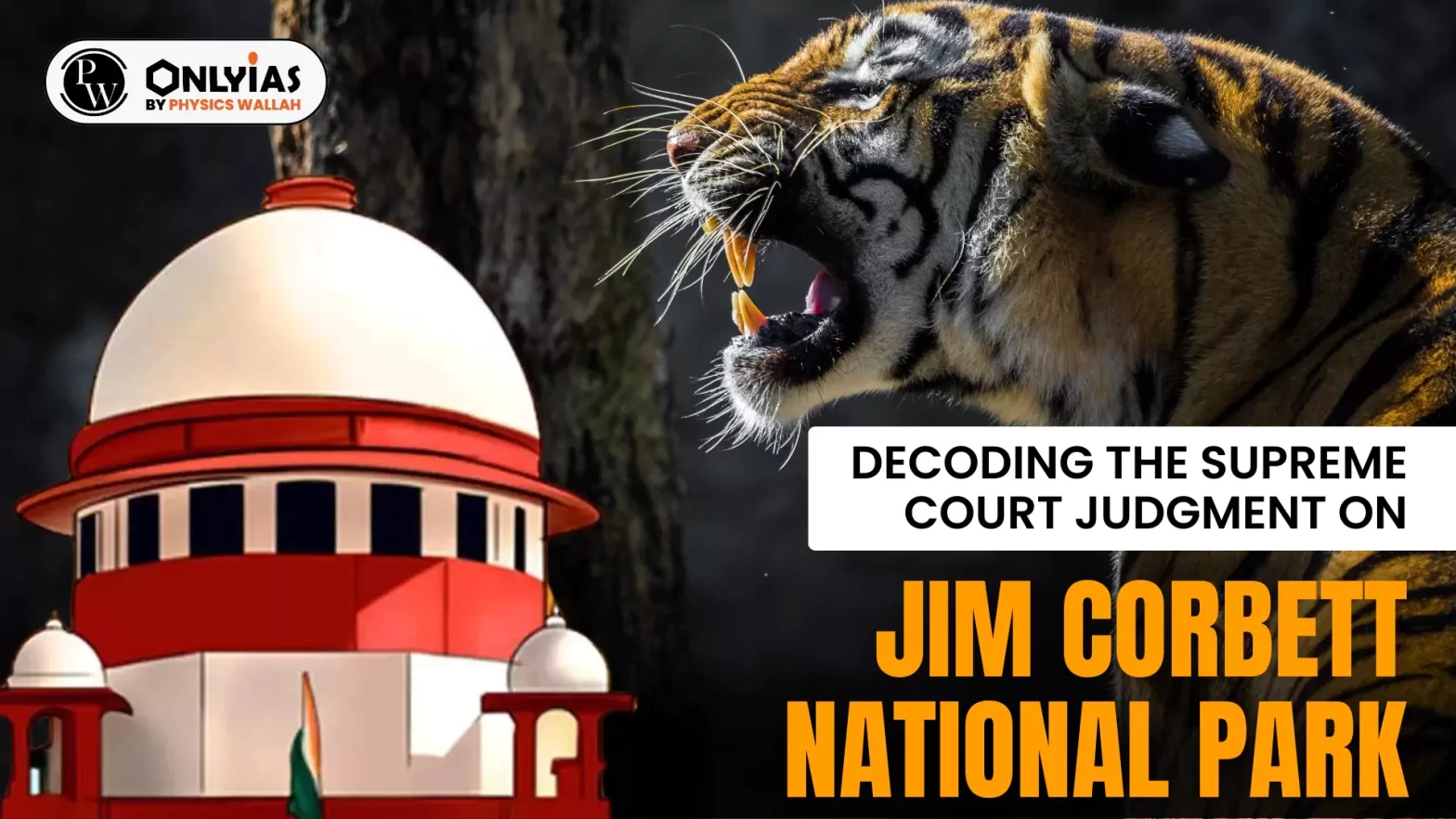Context
The Supreme Court exposed the corrupt collaboration between politicians, forest officials, and local contractors responsible for the unlawful felling of 6,000 trees in the Jim Corbett National Park.
Enroll now for UPSC Online Course
Recent Supreme Court Judgement on Jim Corbett National Park
- Revenue Over Conservation: Despite laws like the Wildlife Protection Act and Forest (Conservation) Act, revenue remains the state’s primary focus.
- Rural Litigation and Entitlement Kendra vs. State of Uttar Pradesh: The Supreme court said that “economic growth cannot be achieved at the cost of environmental destruction and people’s right to a healthy environment.”
Key Points of the Supreme Court Judgement on Jim Corbett
- Shift from Anthropocentrism to Ecocentrism: The Supreme Court emphasized the importance of an eco-centric approach rather than anthropocentrism in ecotourism management.
- Ban on Tiger Safaris in Core Areas: The court ordered the ban on tiger safaris in core areas of national parks, with the goal of minimizing environmental damage and disturbance to wildlife habitats.
- Committee Formation for Feasibility Study: A committee was formed to investigate the potential of allowing tiger safaris in the peripheral parts of national parks across India, showing a cautious approach to balancing tourist and conservation objectives.
- Precautionary Principle and Biodiversity: Court invokes precautionary principle to minimize potential harm caused by banning safaris in core areas.
- Safeguarding Biodiversity: Urgent need to prioritize biodiversity conservation, as underscored by British environmentalist Norman Myers.
Limitations of Restoration Plans
- Undefined Methodology: Court’s plan to recover restoration costs lacks a clearly defined methodology, raising concerns about its efficacy.
- Ecosystem-Based Valuation: Call for a valuation method based on ecosystem services to accurately assess environmental damage. Emphasis on prioritizing conservation efforts over revenue generation in restoration plans.
Missed Opportunities in Environmental Policy
- Prioritizing Ecosystem Services: Court misses the opportunity to set a precedent by prioritizing ecosystem services over ecotourism in conservation efforts.
- Referring to ICJ Rulings: Supreme Court overlooks the potential insights from International Court of Justice’s ruling in Costa Rica v. Nicaragua.
- The ICJ asserted that damage to the environment, and the consequent loss of the ability of the environment to provide goods and services, is compensable.
Enroll now for UPSC Online Classes
Conclusion
The Supreme Court’s verdict highlights the crucial need for an ecocentric approach to conservation, emphasizing the need of valuing ecosystem services and implementing robust methodology for assessing environmental damage and restoration costs.
Also Read: Rising Human Wildlife Conflict (Human-Animal Conflict)
![]() 15 Apr 2024
15 Apr 2024

